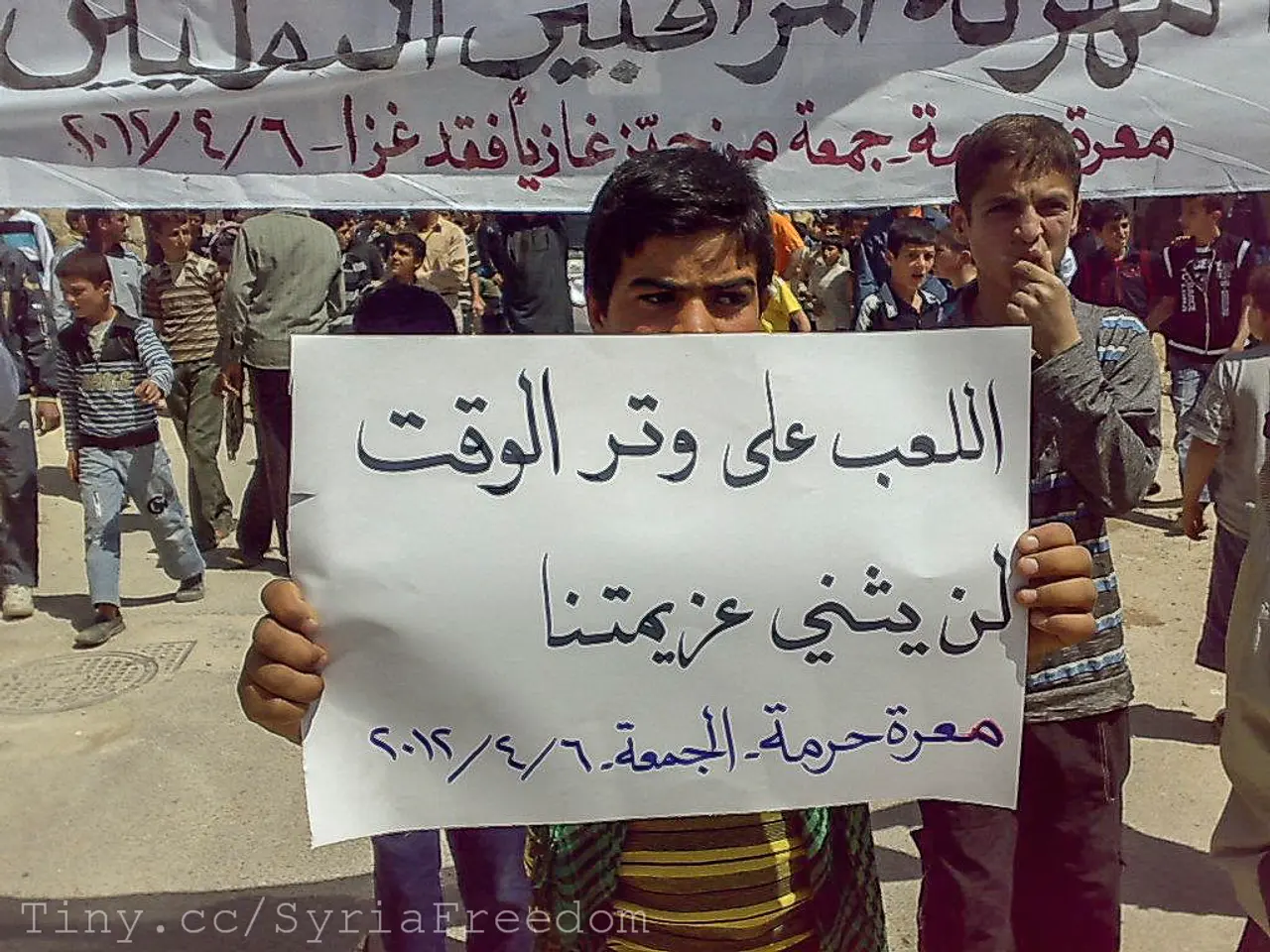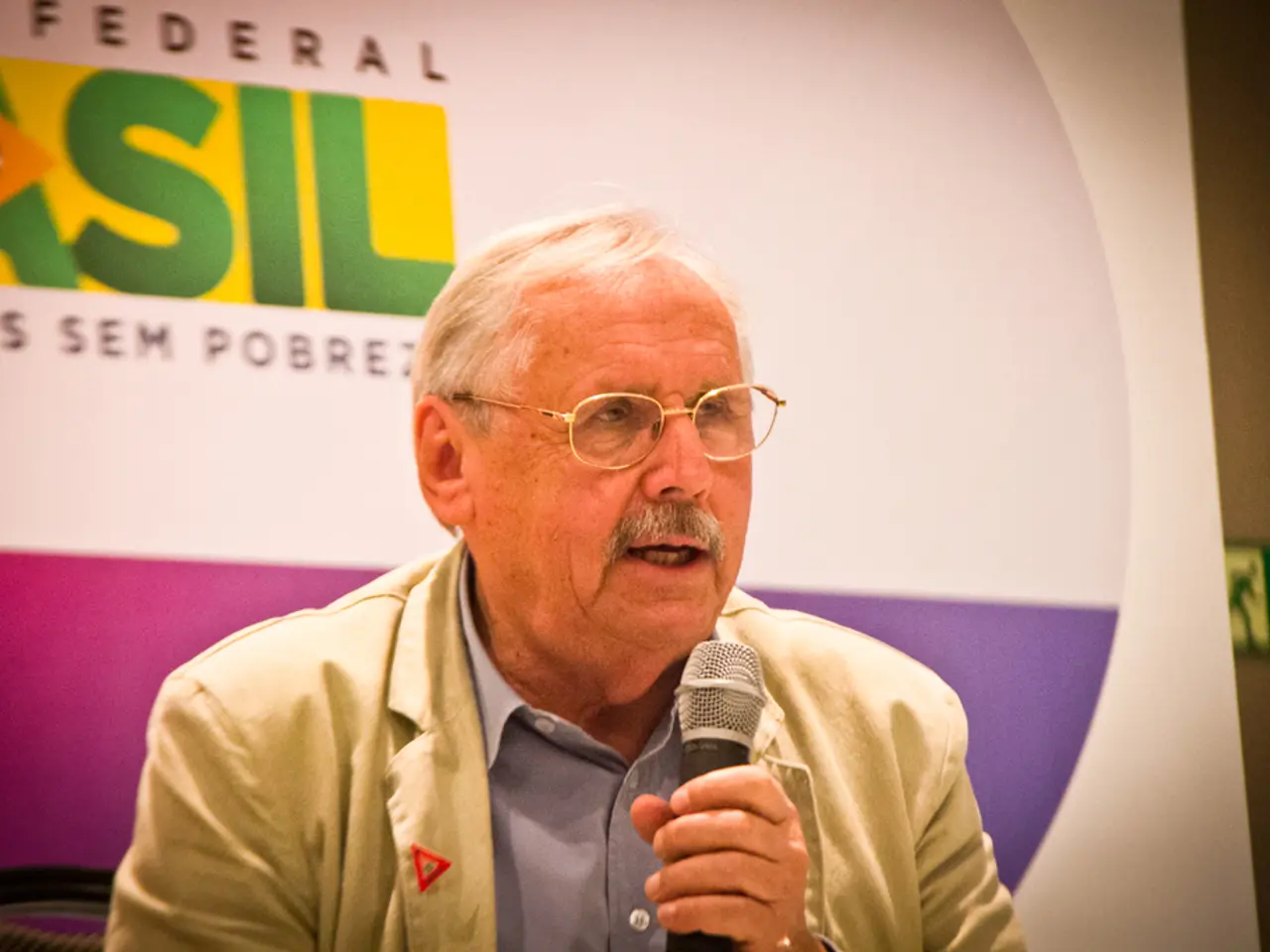Hamas's proposed truce terms, as stated by Netanyahu, are considered unacceptable.
Indirect negotiations between Israel and Hamas, mediated by Qatar, Egypt, and the USA, are set to resume as both parties seek a resolution to the ongoing conflict in the Gaza Strip.
The hope of ending the ordeal for the remaining live hostages hangs in the balance, with the possibility of a permanent cessation of the war being a key point of discussion. However, a significant obstacle remains: Hamas has reservations about the proposed ceasefire, particularly with regards to the continuation of talks until an agreement is reached, control of humanitarian aid delivery, and the Israeli military's withdrawal positions.
Israeli Prime Minister Benjamin Netanyahu and US President Trump are reportedly scheduled to meet at the White House on Monday, potentially providing a platform for further discussions. Trump has expressed optimism, stating there could be a deal next week.
The proposed ceasefire envisions an initially 60-day period during which negotiations for a permanent end to the war will take place. However, achieving consensus on the terms of a lasting peace remains difficult, with the core disagreement lying in Hamas demanding a guaranteed permanent end to the war and the terms surrounding prisoner exchanges and hostages, while Israel insists on maintaining military options and has not agreed to a permanent ceasefire upfront.
The latest proposal for a deal reportedly only envisages the release of ten of the 20 hostages assumed to be alive in exchange for Palestinian prisoners. The bodies of 28 abducted persons are still in Gaza, and at least 20 hostages are still alive according to Israeli intelligence, while the status of two kidnapping victims is unclear.
Meanwhile, tensions continue to rise in the region, with reports of attacks on Gaza Humanitarian Foundation (GHF) personnel. Two American helpers of the GHF were injured in an attack on a food distribution center, with two attackers reportedly throwing two grenades towards the helpers. The US Department of State has blamed Hamas for the attack.
In response, thousands in Israel have demanded the release of all hostages held by Islamists in the Gaza Strip. Maccabit Meyer, the aunt of two twin brothers held by Hamas, called for a deal that saves everyone without "selection" at a rally in Tel Aviv.
Despite the challenges, both sides show some flexibility, with Hamas agreeing to forgo public ceremonies for hostage releases during this ceasefire, unlike in previous arrangements. However, these fundamental issues remain unresolved as of early July 2025, with the future of the Gaza Strip hanging in the balance.
[1] The Associated Press. (2025, July 1). Israel, Hamas remain at odds over Gaza ceasefire terms. [online] Available at: https://www.apnews.com/article/israel-gaza-strip-hamas-benjamin-netanyahu-a0484679e1f9945c4b96a5c8473f8602
[2] Reuters. (2025, July 2). Israel rejects Hamas demands in Gaza ceasefire talks. [online] Available at: https://www.reuters.com/world/middle-east/israel-rejects-hamas-demands-gaza-ceasefire-talks-2025-07-02/
[3] Al Jazeera. (2025, July 3). Gaza ceasefire talks: What's at stake? [online] Available at: https://www.aljazeera.com/news/2025/7/3/gaza-ceasefire-talks-what-s-at-stake
- In the midst of the complex negotiations, ongoing war-and-conflicts between Israel and Hamas over the terms of a ceasefire have dominated political discussions, with the general news heavily focusing on the potential agreement.
- As Hamas continues to express reservations about specific conditions of the proposed ceasefire, such as the control of humanitarian aid delivery and permanent withdrawal positions of Israeli military, the future of general news surrounding war-and-conflicts and politics in the region hangs in the balance.





